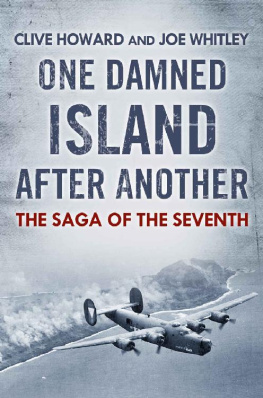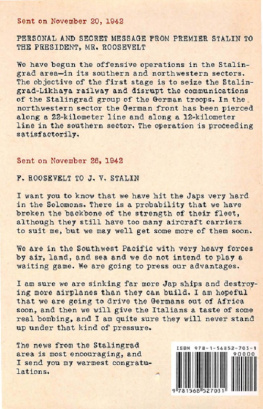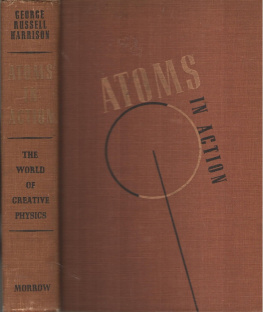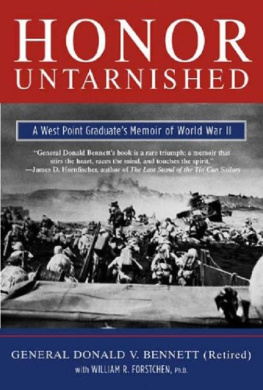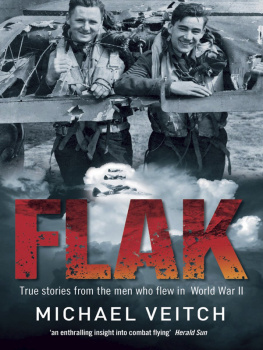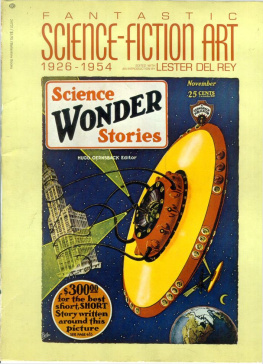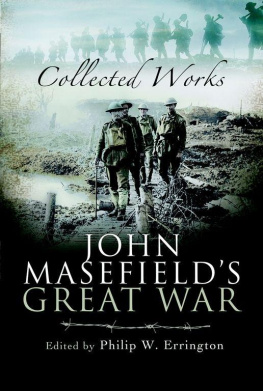Clive Howard - One Damned Island After Another - The Saga of the Seventh Air Force in World War Two
Here you can read online Clive Howard - One Damned Island After Another - The Saga of the Seventh Air Force in World War Two full text of the book (entire story) in english for free. Download pdf and epub, get meaning, cover and reviews about this ebook. publisher: Brigadier Books, genre: Detective and thriller. Description of the work, (preface) as well as reviews are available. Best literature library LitArk.com created for fans of good reading and offers a wide selection of genres:
Romance novel
Science fiction
Adventure
Detective
Science
History
Home and family
Prose
Art
Politics
Computer
Non-fiction
Religion
Business
Children
Humor
Choose a favorite category and find really read worthwhile books. Enjoy immersion in the world of imagination, feel the emotions of the characters or learn something new for yourself, make an fascinating discovery.
- Book:One Damned Island After Another - The Saga of the Seventh Air Force in World War Two
- Author:
- Publisher:Brigadier Books
- Genre:
- Rating:4 / 5
- Favourites:Add to favourites
- Your mark:
One Damned Island After Another - The Saga of the Seventh Air Force in World War Two: summary, description and annotation
We offer to read an annotation, description, summary or preface (depends on what the author of the book "One Damned Island After Another - The Saga of the Seventh Air Force in World War Two" wrote himself). If you haven't found the necessary information about the book — write in the comments, we will try to find it.
By: Clive Howard, Joe Whitley,
ISBN 10: 1724014439
ISBN 13: 9781724014436
ISSN:
ISFDB Publication Record #
ASIN: B07HM79SXZ
British National Bibliography System Number: 016139777
Canadian National Catalogue (AMICUS) Number: 31868421
Library and Archives Canada Cataloguing in Publication:
National Library of Australia Bib ID: 2444605
OCLC Number: 568308427
(OCoLC): 834164
eISBN 10:
eISBN 13:
Library of Congress Catalogue Card Number: 47030014
Publisher: Brigadier Books/The University of North Carolina Press (2018)
WWII, The combat history of the Seventh Air Force from Pearl Harbor to the end of the war against Japan,
This is the official history of the Seventh Air Force. It is not a brass hat story; it is told from the point of view of the men themselves, often in their own words, with realistic vigor and with the lively sense of humor that made it possible to achieve victory in the Pacific.
On 19th October 1940, the Hawaiian Air Force, later known as the Seventh Air Force, was established to provide air defense of the Hawaiian Island and to engage with threats in the Pacific.
Just over a year later the Japanese attack on Pearl Harbor devastated this force. Out of a total of 231 aircraft of the Hawaiian Air Force, 64 were destroyed and not more than 79 were left usable.
Out of the inferno emerged the newly reformed Seventh Air Force.
It faced, in the central Pacific, the largest water theater in the world - sixteen million square miles, five times the size of the United States.
The Americans patched up their planes as best they could and began to fly the Atoll Circuit, the low-lying, white sand atolls and the first stepping stones on the long road to Tokyo.
In this huge area and against a fearsome opponent, the men of the Seventh were forced to fly the longest missions in any theater of war, entirely over water and, at first, without fighter escort.
They fought at Midway, Guadalcanal, Tarawa, Kwajalein, Eniwetok, Truk, Saipan, Palau, the Philippines, Iwo Jima, and finally Tokyo.
Clive Howard and Joe Whitleys history of this remarkable air force covers from the events at Pearl Harbor through to V-J Day, covering every single island that the force landed on in between.
They listened to demand of Corporal Earl Nelsons article Heroes Dont Win Wars, that criticised the press and radio that only recorded the fantastic achievements of men who wore medals; Why dont they talk about the guy who is just a soldier?
So with humor and insight Howard and Whitley and provided us with a history of the Seventh Air Force that doesnt focus on only the glorious achievements of some men, nor does it simply record the accounts of the brass hats, but instead gets to the heart of what the men of this extraordinary force did and thought.
Clive Howard and Joe Whitley were both sergeants and served as correspondents for the Seventh Air Force. They were there; they saw it happen. Their book One Damned Island After Another was first published in 1946.
.
Clive Howard: author's other books
Who wrote One Damned Island After Another - The Saga of the Seventh Air Force in World War Two? Find out the surname, the name of the author of the book and a list of all author's works by series.

